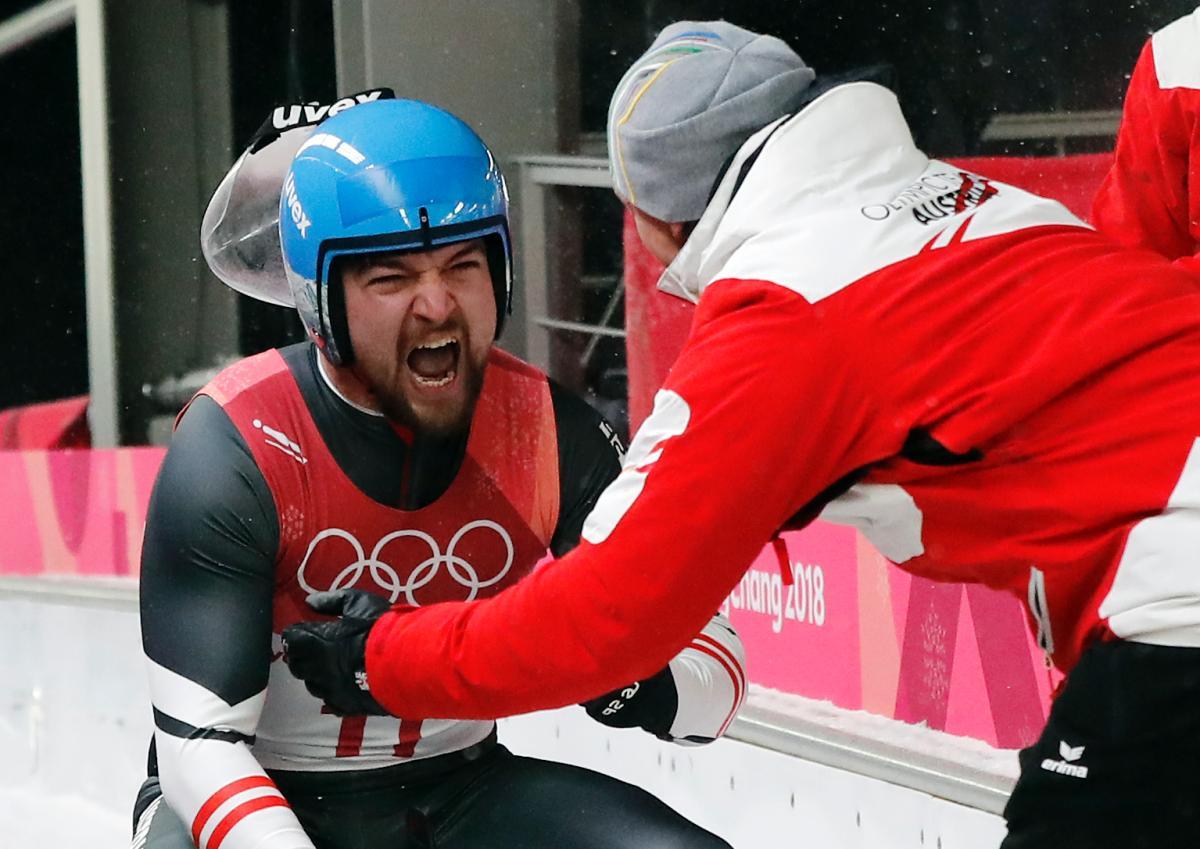
Watching on from afar, it has looked like an impressive start to proceedings at the Pyeongchang 2018 Winter Olympics.
If organizers wanted to write a script for the Games, they would probably have begun with some favorites coming to the fore and a couple of shock results to really whet the appetite for the days ahead.
They certainly have had that.
The surprise result in the men’s sprint biathlon race was an example of this, as France’s pre-race favorite Martin Fourcade surprisingly saw his first shot of gold go up in smoke. Having, well, not shot accurately enough.
A rare couple of errors for the Frenchman, who has been a dominant on the World Cup circuit, allowed Germany’s Arnd Peiffer the opportunity to celebrate an unlikely gold.
The BBC had just finished picking through the bones of the result, when most people’s attention shifted to watch a German luger lock up another gold medal.
Just as co-commentator – and probably future Sochi 2014 four-man bobsleigh bronze medalist – John Jackson was complimenting Felix Loch for three faultless runs, the pitch and tone of commentary went from procession to pandemonium.
With the error seeing Loch drop not just out of the gold medal position, but off the podium entirely, the cameras struggled to know where to look moments after.
There was Loch at the bottom of the course near motionless with his head planted sullenly in his hands.
Then, David Gleirscher becoming the first Austrian for 50 years to clinch the men’s luge Olympic title being swarmed by team-mates and coaching staff.
I am not entirely sure where the United States’ Chris Madzer was. Given that he hurdled the barriers to celebrate with the American fans after securing their first ever men’s Olympic luge medal when he confirmed bronze, one imagines he was halfway towards Seoul in celebrating his bump up to silver.
If anything, the best reaction of all was that of Johannes Ludwig. When the cameras panned to the German, his near expressionless face showed the awkwardness of the situation for him.
“My team-mate has just seen hopes of a third consecutive gold dashed, but I have won the bronze, how on earth to I react.”
It was also one of those moments where you truly appreciated having the commentators there. Despite following the World Cup season, I honestly did not remember seeing Gleirscher’s name too many times. If someone had said an Austrian would win, then surely it would be world champion Wolfgang Kindl.
There the commentators, offering the snippet that Gleirscher’s highest result of the World Cup season was a fourth place finish.
Clearly it is their job to have done their homework and know about the sliders, but I wonder whether the same level of information would have been made clear to those spectators at the venue.
The spectators would certainly have been able to revel in the atmosphere of a thrilling conclusion to the competition, one they will no doubt feature heavily in the montages at the end of the Games and well into the future as part of the Olympic Channel’s Twitter and Facebook clips.
But, perhaps while they benefit from the atmosphere first hand, maybe they miss out on some of the nuances offered by the event amid the chaos at the end.
While it is no substitute for actually being at a single event, the Olympics are clearly a wonderfully television friendly event.
One minute you are watching a snowboarder fly up a ramp before producing an outrageous trick, then the other you could have switched over to watch an entirely different sport in curling.
With a good chunk of people having very little awareness of winter sports, outside the traditional winter sport nations, the commentators certainly earn their corn here.
The untrained eye can normally make a half decent stab at whether a slopestyle run is good or not. Touching the snow with your hand or backside see the judges mark you harshly, while a snowboarder sliding down headfirst, with their arms outstretched and appearing to be sighing, normally suggest things have gone fairly disastrously.
However, it is the intricacies over a snowboarder’s certain style or why it is more important for a short track speed skater to hit the opening turn of the race first, instead of a rival, that provide some added depth to proceedings back home.
Television succeeds in other areas with the Games, particularly in showing off Pyeongchang as a place. It really does look like a winter sports resort, as organizers would have hoped. The shots panning around do also show the scope of the Games and the facilities in the area.
As previously mentioned, it does fall down on the atmosphere, which is never likely to compare to actually being there.
It also does not provide the intimate feel of a venue, something which became apparent to me when watching the ski jumping competition.
Sure, the ski jumping facility looks high up on television. But having been fortunate to stand at the top of the venue a year ago and look down, as well as watching tiny athletes get every bigger as they come out of the sky from the bottom, the scale of the drop does not compare in the slightest.
Fortunately, there is not the biting cold watching on television, compared to the minus numbers which you would have to stand in to watch ski jumping.
Mind you, there 1 a.m. starts to competition back home might be a downside. But, if competition continues as it has done on the first two days, it’ll be worth it to carry on watching live.
By Michael Pavitt
Republished with permission from insidethegames.biz.